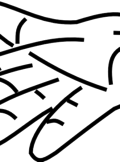 Everyone knows that publishers in Australia are playing catch-up on ebooks, and therefore so are many agents and their authors. Why this is so when the writing has been on the wall for ebooks for years is a gripe for another time.
Everyone knows that publishers in Australia are playing catch-up on ebooks, and therefore so are many agents and their authors. Why this is so when the writing has been on the wall for ebooks for years is a gripe for another time.
Borders Australia, among others, are the catalyst for this. Prior to (and also after) the launch of their ebook store back in May, Borders minions have been racing around the country getting major publishers signed on to offer ebooks in their store. They tell me, as of today, they have now signed all but one Aussie publisher, but are a few weeks away from getting all their titles live on their site. Pretty good going, in a short period of time really.
So suddenly there is a major sales outlet for Australian ebooks – you could practically hear publishers and agents scrambling to ink new deals for ebook rights. There is a strong rumour in the industry that Apple and Amazon are looking to employ people on the ground here to do the same. Soon.
So all that means a flurry of new contracts, and when the paradignm of an industry changes en masse like this, the small players can get screwed. That is, competition disappears if most of the industry moves on the same thing at the same time. The choices dry up for authors and/or agents. Another reason to self-publish, perhaps?
Reading the release the Australian Society of Authors sent me, I think that could be happening now. Disclosure: I’m an author and former (but not current) member of the ASA.
But I’m torn on this. I want new authors to be introduced to the market and publishing to flourish, but I can’t see how authors can expect the same dollar-amount cut of a product that costs a lot less than a paper book. Just because paperbacks and hardcovers have been overpriced in this country for decades doesn’t mean that’s the way things should be, or stay. But this assumes that prices are stable. They’re not: paper book prices are sliding quickly.
If we had a truly open marketplace paper books would be $A15-20, rather than $A25-35, and that’s where they’re finally headed. See Borders Australia’s “We’ll beat Amazon” price guarantee (hat’s off to that initiative by the way) … prices are heading south as protectionism fades and the industry slowly succumbs to the global marketplace.
Maybe wishing for the same dollar amount as a print book sale could be tying yourself to a sinking ship. But I think the ASA is right overall. Royalty percentages should rise because p-book prices are falling. We want to maintain the same income to authors.
Here’s the press release from the ASA site:
The Australian Society of Authors (ASA) has released its recommendations to authors on e-book royalties and contract clauses.
Essentially, the ASA’s position is that, at a minimum, authors should receive the same dollar amount from an e-book sale as they do from the sale of the print book in a bookshop.
Right now Australian publishers are offering authors new contracts – or asking them to sign addendums to existing contracts – that pay only 7% to 25% royalties on e-books. That sounds like a lot, but the way online selling works means that it’s a lot less than the standard 10% royalty on a print book.
Angelo Loukakis, the ASA’s executive director, advises local authors of print books that sell as e-books with a list price between US$10 and US$20 to aim for a minimum e-book royalty of 35% of what the publisher receives from the online reseller.
The ASA’s recommendations have been published in a 11-page paper, “E-books: Royalties and Contracts” available on its website, www.asauthors.org
Editor’s Note: the above originally appeared in Jason Davis’ Book Bee site. PB































